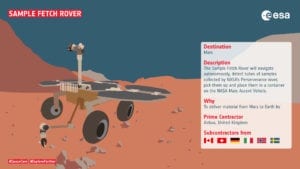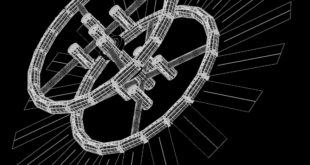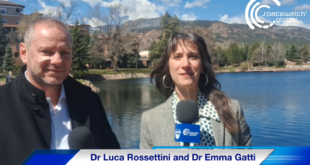
Luxembourg, 11 November 2020. – NASA is on track to bring samples from Mars to Earth, the U.S. space agency said, citing a report from the Mars Sample Return (MSR) Independent Review Board (IRB).
Following an examination of the agency’s ambitious Mars Sample Return plan, the board’s report concludes that NASA is prepared for the campaign, building on decades of scientific advancements and technical progress in Mars exploration, NASA said.
The Mars campaign – a collaboration with the European Space Agency (ESA) – will require three advanced space vehicles. The first, NASA’s Mars 2020 Perseverance rover, was launched in July and is more than halfway to the Red Planet. It has a sampling system on board, with a coring drill and sample tubes that are the cleanest hardware ever sent to space, as NASA claims. Once on Mars, Perseverance aims to collect rock and regolith samples, leaving them on Mars for another rover, from ESA, to pick it up and bring it to a NASA-provided Mars Ascent Vehicle, which then would launch the samples into orbit around Mars. An ESA-provided Earth Return Orbiter would meet this vehicle in the Mars orbit and take the samples back to Earth, arriving in the 2030’s.
NASA initiated the review in August to ensure the long-awaited mission is positioned for success. It is the earliest independent review of any NASA Science Mission Directorate large strategic mission, the agency said, adding that historically, such reviews have not occurred until much later in the program development.
“The independent review has given strong support to MSR, which is great news for the campaign,” says ESA’s Director of Human and Robotic Exploration, David Parker. “It reinforces our shared vision to provide the world’s scientists with pristine pieces of the Red Planet to study using laboratory tools and techniques that we could never take to Mars.”





